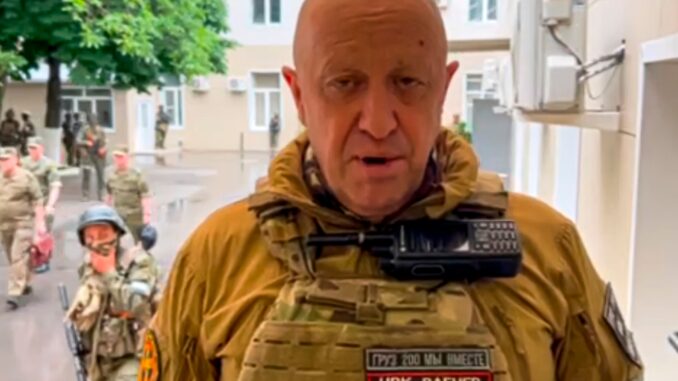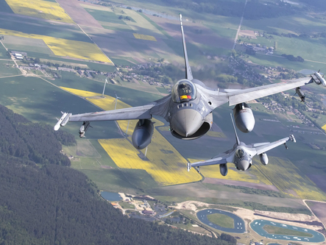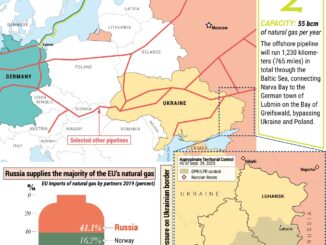
One of the more important battles of the Ukraine war has been taking place within the Russian government itself. Reports over the past several months paint a picture of tension among the Kremlin, the military, private mercenaries and oligarchs, even if most of their differences were kept out of the public eye. That changed on June 23, when the Wagner Group started its insurrection in southern Russia, clearly demonstrating that it disagreed with President Vladimir Putin and that it was ready to defy the Defense Ministry. This raised questions about whether the insurrection could upend the government. It didn’t.
Initially, Wagner took control of Rostov-on-Don. Armored vehicles along with detachments of Wagner cordoned off the headquarters of the Southern Military District, the head office of the Ministry of Internal Affairs, the local Federal Security Service building, one of the police departments and more. Wagner chief Yevgeny Prigozhin conditioned his release of the city on Defense Minister Sergei Shoigu and Chief of General Staff Valery Gerasimov meeting him at the headquarters of the Southern Military District. A contingent of Wagner forces also advanced north from Rostov-on-Don, past Voronezh and toward Moscow. Western media, in contrast to Russian outlets, reported that Wagner had taken control of all military facilities in Voronezh.
The Kremlin’s response came quickly. First, it tried to deplete the ranks of the Wagner fighters, appealing to those involved in the Rostov-on-Don operation to stop and resume contact with Russian officials as quickly as possible. The Defense Ministry also announced that it was aiding Wagner fighters who ask for the safe return to their bases. Reports suggest some took the government up on the offer, or returned to their places of deployment after being called up by the ministry.
In response to the threat to Moscow, the Kremlin expanded the coverage area of its special anti-terrorist operation to include the capital city, its surrounding regions and Voronezh. It also canceled large public events and removed Wagner advertisements. In St. Petersburg, government security forces cordoned off Wagner’s building on Zolotaya Street. The government closed part of the M-4 highway in the Voronezh region. Most notably, Russian military aircraft reportedly engaged the Wagner forces along the highway.
Meanwhile, Putin tried to consolidate public support and show strength. In a morning address, he called Wagner’s actions treasonous and warned that participants in the rebellion would suffer severe punishment. He also called friendly governments in the region – Belarus, Kazakhstan, Uzbekistan and Turkey – to try to shore up support.
Evidently, the conversation between Putin and Belarusian President Alexander Lukashenko was extremely fruitful. Lukashenko mediated talks between Putin and Prigozhin that resulted in an agreement whose details remain a mystery – except that Prigozhin announced that Wagner would stop its advance toward Moscow, return to its bases and try to further de-escalate.
Whether or not the situation is resolved, the future of Russia’s armed forces and Wagner remains uncertain. Wagner played a key role in Russia’s strategy in Ukraine and repeatedly proved to be among Russia’s most effective fighting forces. It is unclear whether Wagner will challenge Putin again in the future, or whether there will be changes in the Russian military leadership. Also unclear is what effect the insurrection and agreement might have on Wagner and Russian troops in Ukraine.
A final possibility is that we have just witnessed a classic Russian “maskirovka,” basically theater to distract from the fighting in Ukraine. Ultimately, no definitive casualties were reported, and a negotiated settlement was reached. It took some wind out of Wagner’s sails, improved Lukashenko’s image and, in the end, demonstrated that Putin remains in control of Russia.
Source: GPF – Please subscribe to Geopolitical Futures –
One of Stu Turley’s Interviews with Dr. George Friedman –
Dr. George Friedman [00:06:50] Well, in 1991, the Soviet Union lost the states that SARS had developed in the 18th century. This was the strategic depth. It was because of distance that Napoleon failed was because of the distance of twice. The Germans failed. Hitler failed to take it, and they lost it. Now, if I’m. A Russian and I’m Putin and I’m from the KGB and I’m a patriot. I want those lands back and those lands that he had lost in 1914, in 2014, I should say, Ukraine is the key to Russian security and he believes that it was an American-planned coup. Oh, well, he argued that as a legally elected president. Was deposed with the laws of deposing him done the Sunday morning before he was kicked out and that the crowds were gathered, organized by American NGOs right now. His view is the hacks computers. We use NGOs. I’m not going to argue about what happened in Ukraine. It’s official that he believes he has to get it back. Hard thing to do. So he went into Belarus, north of Ukraine, right bordering on Poland, and essentially this soft coup himself taking control of it. He went into the South Caucasus. In this war between Azerbaijan and the Armenians, he now has a military in South Caucasus as peacekeepers, right? Good, good. Move out better. Now we think he’s going to be nibbling at Moldova, which is on the Romanian Ukrainian border, and he’s building a structure around Ukraine. But in the south, he’s protecting Russia from a historical invasion path right in the west. He’s protecting that. He is sitting there and saying this is where the enemy comes from. I’ll stop them. Wow. He’s not a nice guy. I think you’re not going to be a nice guy and a Russian ruler, but he is doing what a reasonable Russian would want to do.
Stu Turley [00:09:19] That’s pretty amazing. That is a chess master. I wonder if he plays chess.
Dr. George Friedman [00:09:25] All Russians play chess because we don’t know how to
Stu Turley [00:09:31] know that whole thought process, but does the cybersecurity and all of the ability for people to get to them with bombs and missiles from a distance, does that play into any of his thoughts on that?



